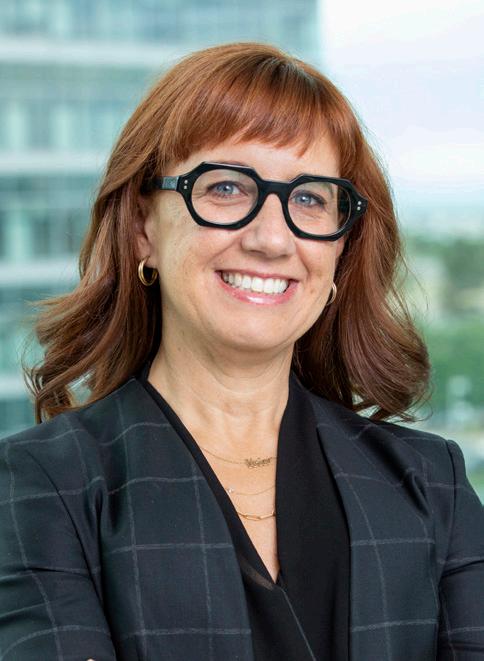
1 minute read
Learning science and medicine
Before he was an internationally recognized lung cancer researcher, Camidge was a stubborn and questioning student charging through British public education. He didn’t grow up in a particularly science-focused family–his father was a sales rep for an electrical switch gear company and his mother was a dentist–but “I always had some vague idea that I could see things that other people couldn’t see,” he says. “Which could also mean I was crazy.” He remembers being in class at age 12 or 13, when everyone else was saying an answer was X, “but I would be saying it’s Y, and here’s why, and occasionally I would be right.”
Following a gap year, Camidge began studying medicine at Oxford at age 19. Coming into his third year there, however, when the program usually pivots toward hospital attachments and clinical work, Camidge “realized two things at about the same time. Firstly, that I was so grossly emotionally immature that I probably shouldn’t be seeing patients. I also wasn’t quite done with finding out the limits of my brain in a purely scientific sense, so I put off my clinical training and went to Cambridge to study molecular biology.”
Advertisement
Working in the famous Medical Research Council’s Laboratory of Molecular Biology, which boasts a longer list of Nobel Prize winners than several countries–including Jim Watson and Francis Crick for defining the structure of DNA and Fred Sanger for determining the entire sequence of amino acids in insulin–Camidge experienced significant imposter syndrome.
“That’s when it hit me, ‘Yeah, you’re not at this level,’ he remembers. “During my Oxford medicine studies, I was reading and memorizing the results of scientific experiments, but I wasn’t doing them with my own hands. Once I jettisoned the idea that success was somehow guaranteed to me, or mentorship was somehow guaranteed to me–when I hit bottom–then things got better.”
Returning to Oxford Medical School older than the rest of his cohort, and having taken on board some “good failures” along the way, he began his clinical medical training with the both the emotional intelligence he felt he’d previously lacked and a scientist’s perspective on medicine.










